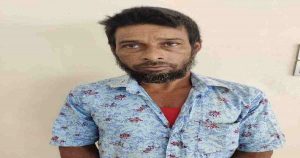World Bank senior vice president and chief economist Dr Kaushik Basu on Tuesday said poor infrastructure and slow bureaucracy are two major challenges for Bangladesh’s economy, which is according to him, is standing at the ‘takeoff stage’. “Infrastructure has to be given huge attention although it’s a matter of finance while bureaucratic process has to be quicker despite regulation,” he said.
Dr Kaushik was addressing a joint press conference with Bangladesh Bank at Bangabandhu International Conference Centre (BICC). Bangladesh Bank governor Dr Atiur Rahman and its chief economist Biru Paksha Paul also spoke on the occasion.
Concluding his three-day visit to Bangladesh, the World Bank chief economist said, “In last three days I saw many documents and statistics, and also visited some places. Now I’ve become more optimistic about the Bangladesh economy. It’s a progress is very much possible and Bangladesh will be a new Asian tiger.”
Responding to a question on Padma Bridge funding that the multilateral donor agency withdrew on charge of ‘corruption conspiracy’, the India-born Bangali economist said it is not a good history although the outcome has been even better as Bangladesh is building the bridge its own fund. “Now the relation between the two is more mature. It’s a new form of relation.”
Dr Kaushik said the withdrawal of fund by Bangladesh has given a confidence in its people.
According to him, the World Bank has been planning to make a new engagement giving a new scope for partnership through the IDA credit.
Replying to another question, the World Bank chief economist said the people of Bangladesh have to understand that they need political stability to entertain foreign direct investment (FDI).
But, Dr Kaushik believes, FDI is now only the requirement to achieve the desired 8 percent growth by Bangladesh for becoming a middle-income country. “At present, Bangladesh’s investment ratio is 29 percent of GDP. It needs 34 percent which could be done through local investment as well.”
About the use of foreign currency reserve, he said a good reserve of foreign currency gives a confidence in implementing big infrastructure projects, but the reserve should not be directly used on that purpose.
He said labour condition is changing in Bangladesh although all have not been done for improvement.
Dr Kaushik appreciated the mobile banking in Bangladesh that was introduced among garment workers and grassroots level people as part of financial inclusion.
Bangladesh possibly has been the second largest user country of mobile banking after Kenya, he said praising the local industrialists for their growing sensibility about the environment.




